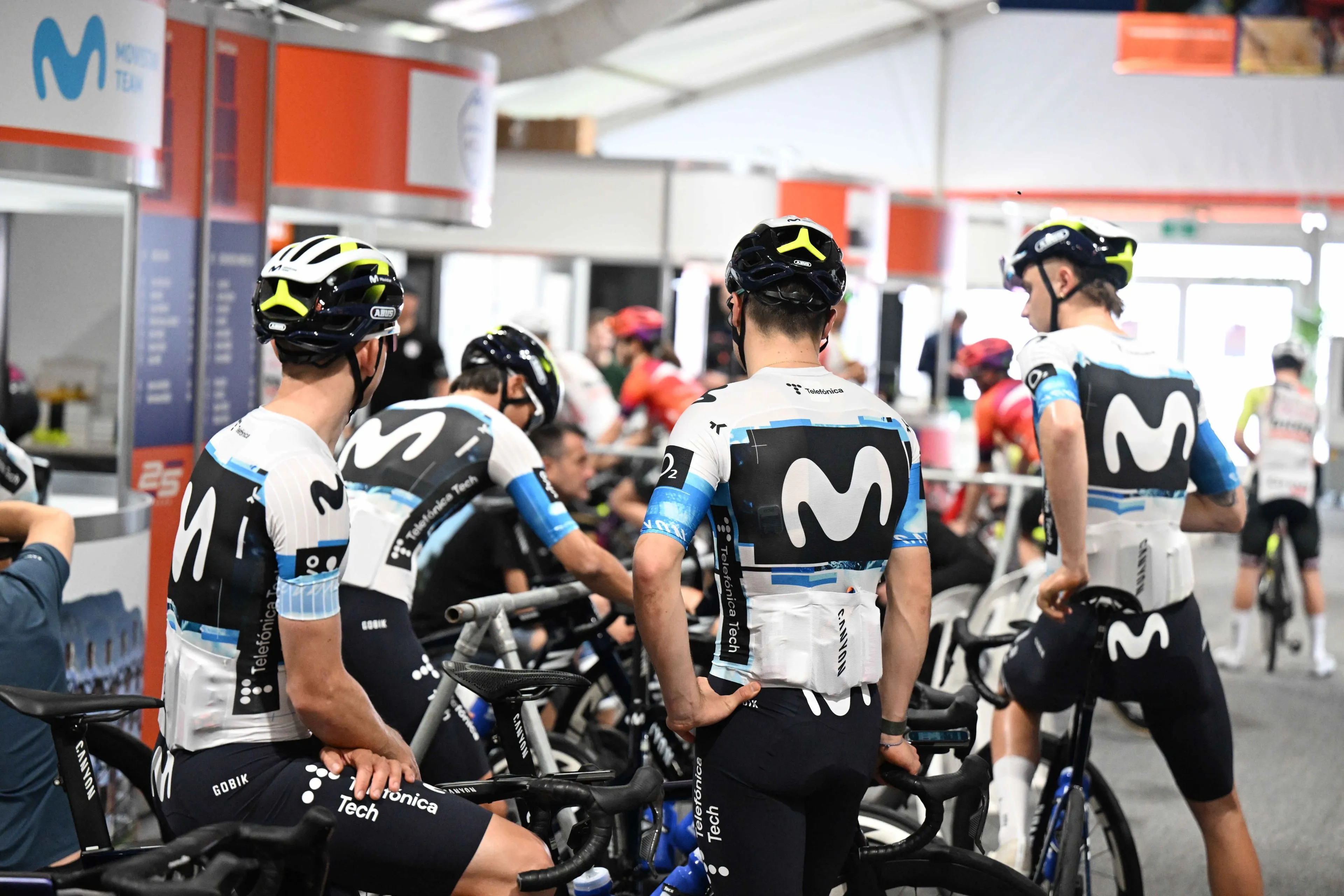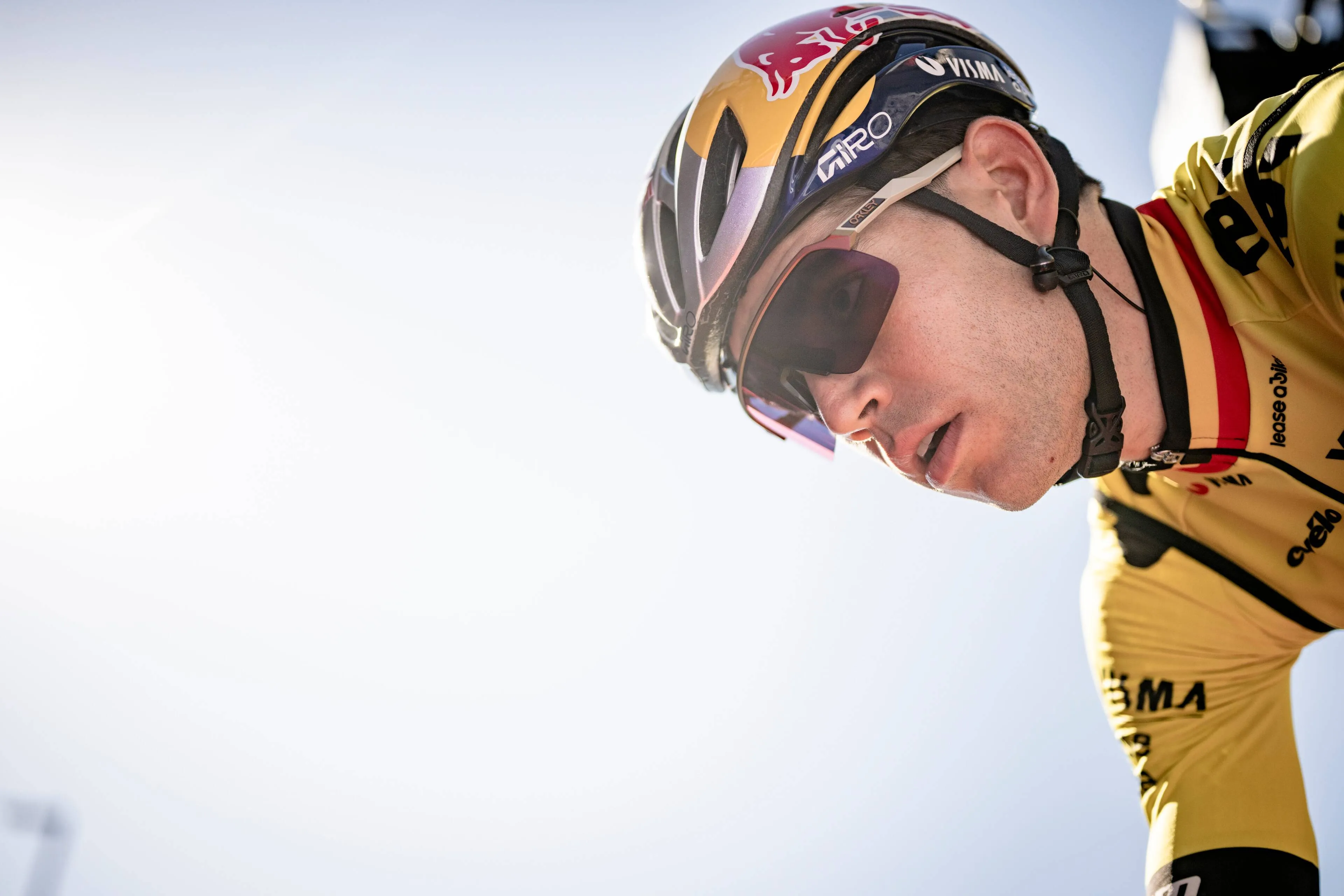Recently retired Tusveld spots gap in cycling market: "Only one WorldTour team has a full-time one on staff"
CyclingWednesday, 22 October 2025 at 15:22
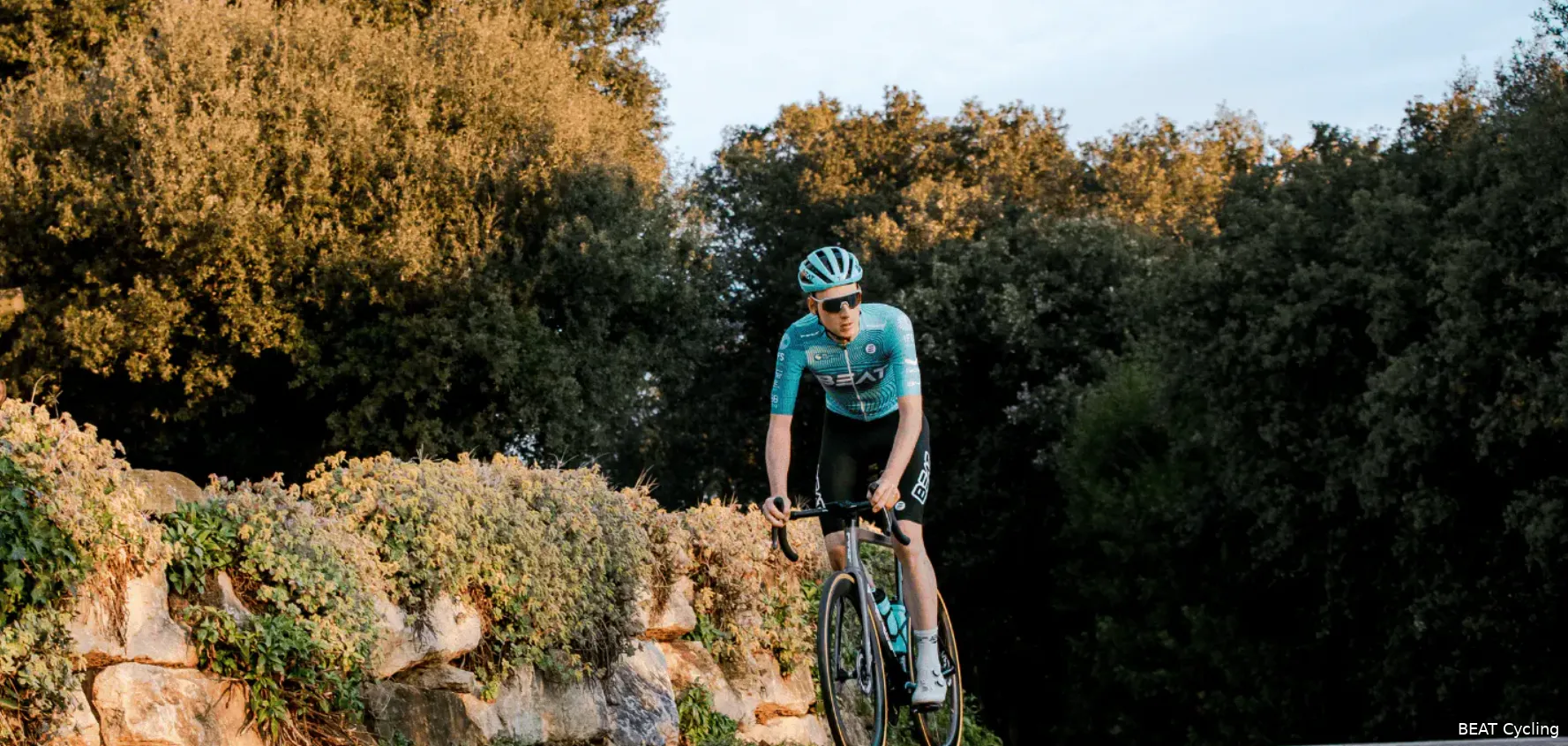
Last Sunday marked the end of Martijn Tusveld's career. The 32-year-old Dutchman found a team at the last minute this spring after having to leave, what was then DSM-Firmenich PostNL, the previous year, but decided a few months later that it had been enough. Tusveld will now focus on a different path, he told IDLProCycling.com.
ADVERTISEMENT
The ever-reliable Tusveld did not follow the usual path to becoming a professional. He rode for Rabobank's development team for five years, during which he also completed internships with the bankers' team and Giant-Alpecin. In 2017, he joined the pro-continental Roompot team.
One season later, he made the switch to WorldTour team Sunweb, where he was a reliable force for seven years. This made it all the more painful that at the end of 2024—despite another good season—there was still no place for him on Iwan Spekenbrink's team for 2025. Other professional teams also failed to recognize Tusveld's qualities immediately, and so in February, he eventually ended up at BEAT Cycling.
ADVERTISEMENT
Continue reading below the photo!
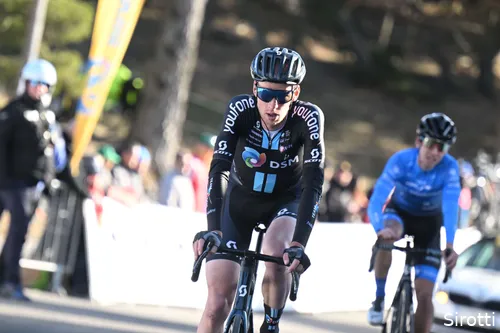
Tusveld on his year at BEAT Cycling
ADVERTISEMENT
That team is running like clockwork this season. After just a few races, last year's UCI points total had already been exceeded. Was that partly due to the experience Tusveld brought with him from the WorldTour? “I think I did contribute something, even though I didn't score any points myself,” he says after a moment's thought.
“Of course, I wasn't there last year, but the team has remained almost completely the same, which I think is also a compliment to the support staff: trainers, nutritionists, a sports psychologist, and more. Almost everyone is performing better, which confirms that it makes sense to focus on development.”
“The difference between WorldTour and continental teams is that the smaller teams are often not used to riding as a team. Many riders ride more for themselves, while you can get further as a team. That approach is paying off for us,” says Tusveld, searching for a reason for the improved performance of the team where Thijs Zonneveld is sporting director.
Continue reading below the photo!
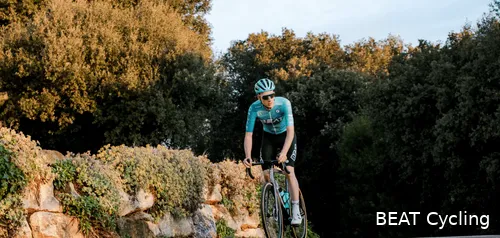
ADVERTISEMENT
Tusveld still struggled with forced departure from WorldTour
Tusveld himself did not achieve any results this year. "I started the season late anyway. Things were going very well in March, but just before the Volta Limburg, I fell ill. Then I was out of action for a long time with physical complaints. In the end, I didn't come close to last year's level, which is a shame and also frustrating. ‘
“It's physical, but also mental,” he explains honestly. “There's also some frustration and disappointment from previous years. It's not obvious to anyone else, but it's become clear to me that physical and mental aspects are intertwined. If you're not at your best mentally, you're not at your best physically either. To be clear, I do feel good, but you're just missing those last few percent. Compared to the last few years at DSM.”
Whereas in recent years he rode alongside top riders such as Tom Dumoulin, Romain Bardet, and Thymen Arensman, at BEAT he suddenly found himself riding with up-and-coming riders such as Frits Biesterbos and Michiel Coppens. “I noticed in Slovenia that a few of those guys were really good. Frits has everything it takes physically to be a WorldTour rider, but he also learns very quickly. At the beginning of the year, I was able to do a good lead-out once, but then he said to me: I have no idea how you did that, but it worked well,” laughs Tusveld.
Continue reading below the photo!
ADVERTISEMENT
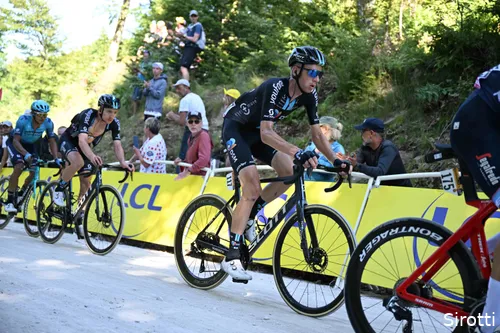
Tusveld sees opportunities in mental coaching for professional cyclists
In addition to being a rider, the rider from Utrecht also had another role in the team as a psychology student. “I'm doing an internship with the team's sports psychologist, and we're working together to set up that mental coaching. I see a future in it, because I see that little attention is paid to it. There is a lot of attention for personal training and nutrition, but in terms of mental health and personal coaching, it's not that great.”
“In the WorldTour, there is only one team that employs a full-time sports psychologist,” explains Tusveld. “That is Lidl-Trek, and I know they want to do more with it. There is demand for that support, but much of it is still left outside the teams. But I do think it will eventually come from within.”
“Take fear of falling: that's something that still happens quite often, but it's not really possible to talk about that kind of vulnerability yet,” explains Tusveld. “At least then riders can talk about it. There is still a lot to be gained in those areas, but that also applies to the culture within a team, for example. Very little attention is paid to that at the moment. Cycling is still conservative in those respects, but I can see that developments are gradually being implemented.”
Read also
IDL-productions
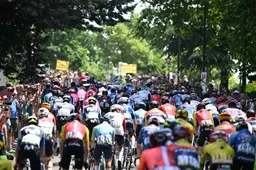
Vacancy: Growth Editor IDL Procycling - (native) English
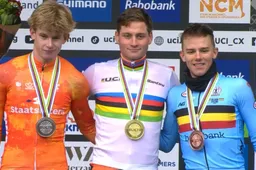
Thibau Nys: “I don’t think World Championship was among Mathieu van der Poel’s best 10 days this winter”
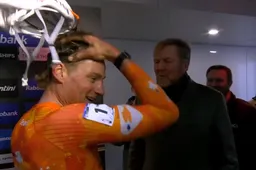
Cyclo-cross king Van der Poel adds record eighth world title in Hulst — after a flat tyre on the way to the race
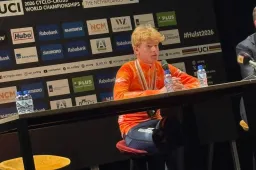
“Quite intimidating,” smiles silver medalist Tibor Del Grosso after his “cool first World Championship among the pros” in Hulst
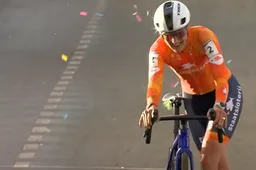
Hours after her World Championship victory, Lucinda Brand shares inspiring words about her title, her mother, Van Empel, and her future goals
Latest Cycling News

Vacancy: Growth Editor IDL Procycling - (native) English

Thibau Nys: “I don’t think World Championship was among Mathieu van der Poel’s best 10 days this winter”

Cyclo-cross king Van der Poel adds record eighth world title in Hulst — after a flat tyre on the way to the race
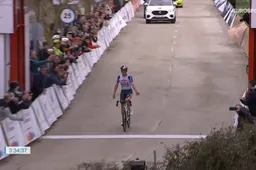
“This is the new cycling,” sighs runner-up after Evenepoel’s Mallorca statement ride

“Quite intimidating,” smiles silver medalist Tibor Del Grosso after his “cool first World Championship among the pros” in Hulst
Popular Cycling News

“This is the new cycling,” sighs runner-up after Evenepoel’s Mallorca statement ride

Hours after her World Championship victory, Lucinda Brand shares inspiring words about her title, her mother, Van Empel, and her future goals
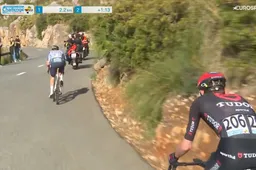
Three from three for Remco Evenepoel as he completes Mallorca hat-trick in style
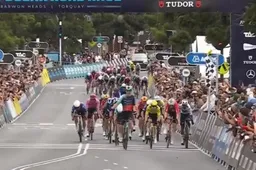
Cheeky Dane leaves Brennan and Visma | Lease a Bike hurting again in Australian finale: “I sounded like a girl!”

Thibau Nys: “I don’t think World Championship was among Mathieu van der Poel’s best 10 days this winter”
Latest Comments
- Nice!Bea22-01-2026
- Those events are mental rest for him. Fun, without expectations. *Sagan lost his abilities because he gained weight and got lazy. Pogi will likely retire before that has a chance at happening.Veganpotter14-12-2025
- Ah, the consequences of riding for Israel.Veganpotter11-12-2025
- Pidcock could follow everyone but Pogi while finishing 3rd. No second place rider this season😃Veganpotter16-11-2025
- Now the Palestinian protestors can stop their whining. Trump came to the rescue. So they can now STFU and go back to waving the rainbow flags.raufus15-10-2025
- Cracked the code lol. If it was that easy to 'crack the code' jonny Vegas would be charging up the Kwaremont giving Pog a dose of his medicine. Evenepoel can't match pog on a climb and neither can mvdp. Anything with a half difficult climb and Pog smashes the field. Even on flat(ish)parcours like Roubaix it came down to a mistake and crash by pog to definitively crown mvdp. MSR is the only one that Pog probably won't win.kevpt10-10-2025
- We've seen this movie before. I think Pogacar is doping.DeadBlow10-10-2025
- 👍Bea08-10-2025
- 👌🏻Bea08-10-2025
- What the data doesn't show is how much of an effect drafting had for evenepoel. Pogacar went with del toro at 100km whilst Evenepoel was still in the bunch. Despite the bike changes he still had a lot of assistance getting back to the bunch. Pogacar then rode 60km solo whilst evenepoel rode with Healy/Skjelmose until going solo in thd last 10-15km. Thats ~20% less power / energy requirements for 45-50km. Apples and oranges...kevpt30-09-2025
Loading
